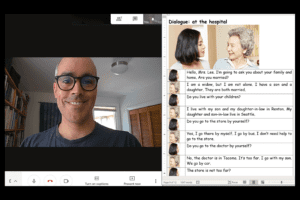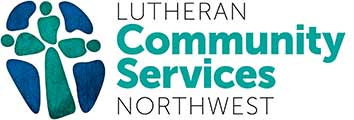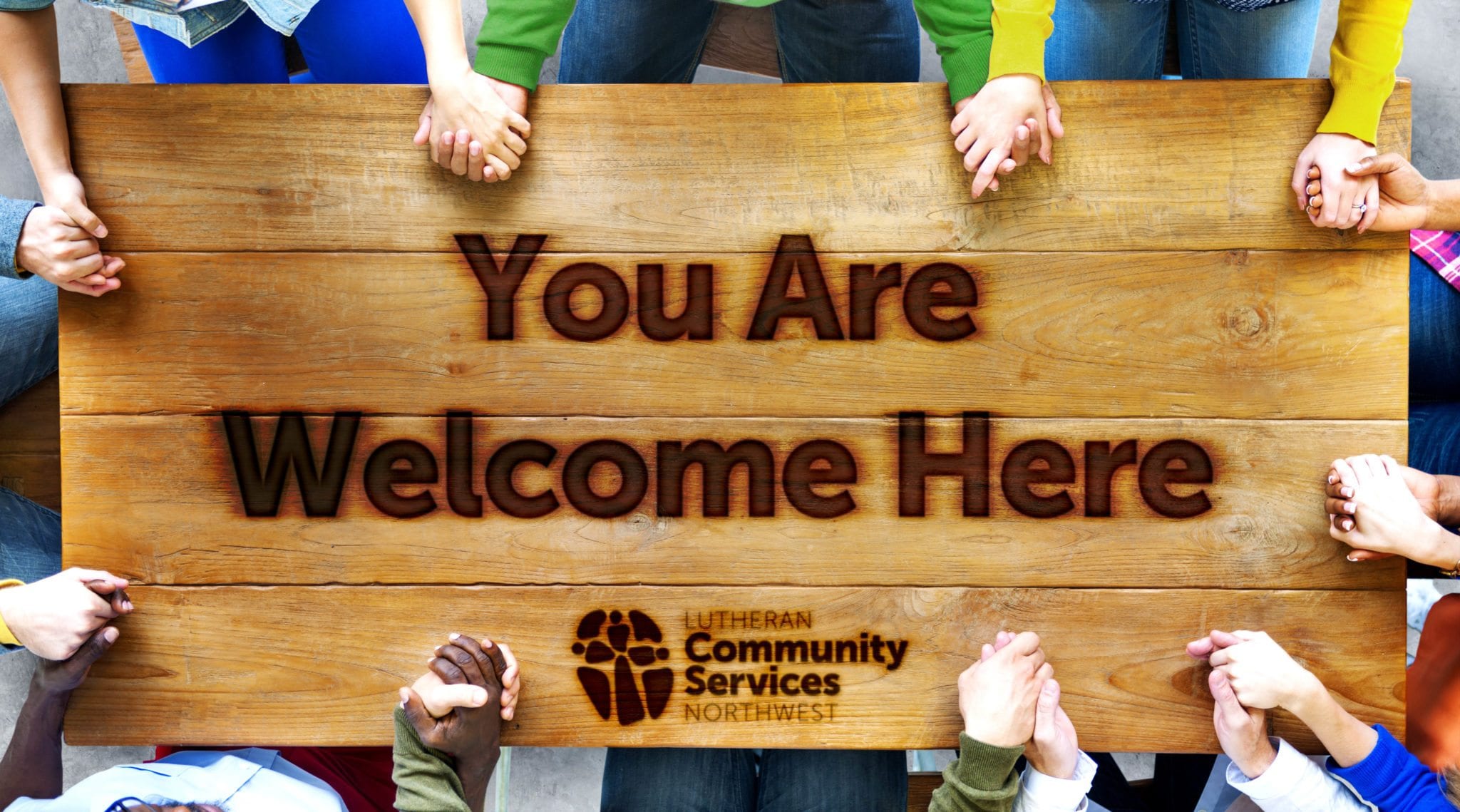
Diego deAcosta presents a telehealth lesson on a video call. A HealtherHere grant is introducing telehealth and virtual communications to refugee elders.
When the spread of the coronavirus forced us to shelter in place in March, business as usual came to a halt. Diego de Acosta, program coordinator for LCS Northwest’s Elder Refugee program based in SeaTac, was unsure how he would continue assisting the 30 participants attending his weekly support group.
Refugee elders face some unique challenges, Diego explained. Instead of enjoying retirement, they’ve been forced to flee their homes and start over in a new land. Our gatherings help them overcome social isolation, connect them with community resources and equip them with the skills they need to make it here.
The support group stopped meeting in March. Diego remained in touch with his elders by phone, sometimes assisted by extended family or an interpreter. He continued to connect them to community resources. He mailed out lessons to encourage them to keep practicing English skills and study for citizenship. Still, group members missed their social interactions.
Thanks to a HealthierHere grant, the Elder Refugee program launched a pilot project using communication technology to socially connect participants and introduce them to telehealth services. The project’s goal is to familiarize up to 50 refugees with these tools.
The elders have different levels of comfort with technology and Diego has helped 17 of them get set up so far. He walks each one through downloading the Google Meet app on their device, then invites them to participate in a video call to learn how it works.
“People want to talk to each other and have side conversations on these video calls, which is great,” Diego said. “But these video platforms amplify voices equally and you’re hearing different languages. It’s difficult to distinguish a side conversation from the group discussion.”
Diego’s solution has been to break the elders into small group conference calls based on their language. He currently leads four sessions each week: one for Ukranian speakers, one for Farsi speakers and two for Arabic speakers. The largest group has five participants.
In addition to socializing, the weekly sessions include English and citizenship lessons. Diego is also introducing health information and plans to include discussions about telehealth with health care professionals in the near future. Topics will include how to sign up for telehealth, exploring what services are available virtually, requesting an interpreter for your visit, and learning to advocate for your medical care.
Each One Teach One
As a former educator, Diego says the best way to help the refugee community access telehealth and communication technology is through each other.
“We’re asking the elders to learn a new skill then teach it to someone else,” he explained. “Teaching someone else will also help them better master the skill.”
When this Each One Teach One method is applied repeatedly, it lifts up communities. It has already happened within the support group. When a couple of elders quickly mastered video conferencing, others felt encouraged to try it with some tutoring from peers.
Video gatherings are helping support group members retain their social connection as they continue to learn English and citizenship. Learning how to navigate telehealth services is also relevant, as some elders have health complications.
When in-person gatherings are possible again, Diego sees advantages in using video conferencing as a tool. Video will expand options for presenters and interpreters. Recording presentations will allow elders who missed a support group session to view it later, and others who attended can watch it again.
The Elder Refugee Program is one of many community services tailored to assist refugees, immigrants and asylees living in South King County. The pilot project runs through Nov. 30, 2020.

